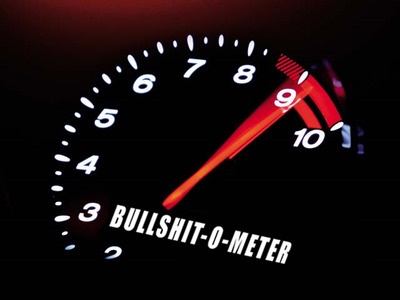Even tried the ridiculous "ball bearing" tweak that was supposed to bring me to orgasm. Only thing it did was make my speakers vulnerable to tipping over.
Haha so he got you with the hip-joints eh? You are more open minded than me I will give you that. I suspect I wouldn't hear a difference on my setup as well. I think I already get the same effect from these cheap samson stands to a lesser extent. When I push on the speaker it moves around back and forth like it is spring loaded. All you need are metal stands with a little bit of elasticity to the poles.
Ah but the tiny resonant frequencies and not totally decoupled etc.. To me none of that really matters because sound travels through the air and hits solids - speakers - directly thought the air. You are not going to stop sound from hitting the speakers completely because sound travels through all matter - air, solid, plasma, liquid.
What DID help was bass traps, and cutting down on reflections. These are tangible and proven tweaks where one can cite many examples of hard science to back them up.
This is where I start to part ways with most all of the audio community. I think that beyond removing early reflections, getting rid of resonant objects, and fine tuning your speaker placement - getting them at least 2 or 3 feet away from the wall - that room treatment is another vain attempt to control things which are so complex we can't accurately predict. I think room response is mostly misunderstood in the audio community and there are a few people who actually get what is going on in relation to a sound environment with countless reflections of reflections and how your brain processes that information and discards the sounds in the room which aren't useful.
I will not deny that room treatment can change the sound of a room. But I have serious doubts that it is a prerequisite for an accurate illusion of a sound stage or that by somehow absorbing the late reflections in a room through the use of human technology it will get me any closer to accuracy.
Siegfried Linkwitz is one of the most outspoken advocates for the type of systems I think will work independent of room treatment. But to tell the truth I am not even as perfectionist as him with some of these things. But here is a great lecture about what he has found in terms of speakers that will work independent of the room's character.
http://www.linkwitzlab.com/publications.htm#23
http://www.zshare.net/audio/6941674293626fd8/
http://www.linkwitzlab.com/AES-London'07/AESUK_lecture_0711.pdf
the lecture is a little long but I think he makes a lot of sense
Another person who has done research along these lines is Earl Geddes
http://www.gedlee.com/Loudspeakers.htm
To put it simply I think that if you use speakers which are either Controlled Directivity, Constant Directivity, Omni, Dipole, or Cardiod that you should not need room treatment in most situations.






